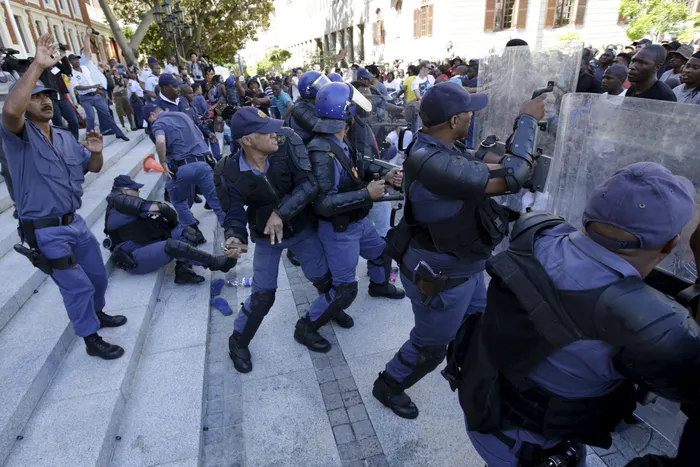Police can’t enforce the law if they don’t know it

In South Africa, police officials are legally authorised to apply force when necessary according to section 205(3) of the Constitution, 1996, says the writer.
Lennit Max
The frequent killings of suspects in Kwazulu-Natal and elsewhere places the use of force by the police once again in the spotlight.
Some assert that the killings are a result of the “trigger-happy” police officers’ “shoot-to-kill” approach, as mentioned by some politicians. Others applaud the police because they don’t have faith in the criminal justice system and perceive these killings as instant justice because they are sick and tired of crime.
It is thus crucial and in the best interest of the police members and the public to explore the legality of the police’s use of force.
In South Africa, police officials are legally authorised to apply force when necessary according to section 205(3) of the Constitution, 1996. The provision states, among others, that the police must “protect and secure the inhabitants of the Republic and their property, and to uphold and enforce the law”. It follows that the state is responsible for ensuring that the police are responsive to civil disorder and criminality.
South Africa routinely experiences violent crime and protests. Thus, the need to ensure citizens’ safety is heightened, and effective and lawful policy has become crucial.
For the police to give effect to their constitutional mandate, they must rely on legislation, to execute arrests, manage and use force where and when necessary.
This is not an easy feat in a constitutional democracy, which ought to strive towards upholding the values of dignity, equality and freedom for all, including those suspected of committing crimes.
Therefore, South African law permits the limitation of a person’s fundamental constitutional rights in certain instances, such as during a lawful arrest. Hence, the use of force is regulated in terms of sections 39 and 49 of the Criminal Procedure Act, 51 of 1977. Section 39 authorises the police to touch a suspect’s body if the latter resists or fails to submit to the arrest. Section 49(2) permits the use of deadly force only if the police officer’s life and/or the public’s lives are in danger and there’s no other way to halt the threat.
Section 49(2) is aimed at protecting police officers and all citizens who live in SA. Simultaneously, it must also be kept in mind that a suspect is presumed innocent until found guilty by a court of law. Punishment of a suspect is thus left to a court of law and not the police.
If the police do not use force and, in appropriate circumstances, lethal force to bring a perpetrator to book. In that case, they will be shirking their section 205(3) constitutional duty to protect persons and could be held liable. It is, therefore, crucial to strike a balance between the State’s mandate to ensure a safe environment and a suspect’s rights.
Police officers must objectively believe that the action taken was reasonable, necessary and proportionate in the circumstances. This may mean that although the suspect posed a serious threat of bodily harm, the police officer could not rely on section 49(2) if other means to mitigate or eliminate the threat were available.
The present legal position is, therefore, that for the officer to rely on section 49(2), he must prove on a balance of probabilities that: (a) he believed and (b) had reasonable grounds for believing that the suspect either (i) posed a threat of serious bodily harm to himself (the arrestor) or members of the public in general; (ii) had committed a crime involving the infliction or threatened infliction of serious bodily harm; and (iii) that there were no other reasonable means of carrying out the arrest at the time or a later stage.
These requirements must be understood and fulfilled.
The Independent Police Investigative Directorate (Ipid) is, therefore, tasked to investigate the use of force, in particular, the use of deadly force by the police, to ensure that their actions are legally sound and, if not, that the officers account for their actions in a court of law or by using disciplinary action.
Therefore, I appeal that police officers must be subjected to compulsory exams to be eligible for promotions. Police officers cannot enforce the law if they don’t know the law.
* Adv Max is a former Western Cape Police Commissioner
Cape Times
Related Topics: